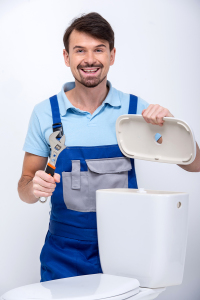Toilet Care And Preventative Maintenance Tips
 If your toilet suddenly starts draining or flushing slowly after working fine for months, the problem may be some type of blockage or clog. Additionally, if you’ve poured drain opener down your toilet or plunged and snaked it countless times yet the problem is ongoing, there may be a problem with the siphoning action. If you’ve done everything imaginable to correct the problem and your toilet is still not functioning properly, it may be time to contact the Long Island professionals at Plumbing Emergency Rescue.
If your toilet suddenly starts draining or flushing slowly after working fine for months, the problem may be some type of blockage or clog. Additionally, if you’ve poured drain opener down your toilet or plunged and snaked it countless times yet the problem is ongoing, there may be a problem with the siphoning action. If you’ve done everything imaginable to correct the problem and your toilet is still not functioning properly, it may be time to contact the Long Island professionals at Plumbing Emergency Rescue.
Normal Function
When flushing your toilet and provided it is operating properly, the water will exit the tank through what is called the valve seat. It comes out around the rim through the siphon jet at the front of the toilet bowl and then washes from the rim underside through the rinse holes. This causes a cleaning action and forces waste out the back of the toilet bowl and into its waste pipe.
Troubleshooting
You should first remove the toilet tank’s lid and then check the water level inside. If the water level is too low, it won’t create enough force to start the siphoning action. Your toilet is designed so that when the water level inside the tank reaches the topmost part of the overflow tube, there will be enough water for a proper flushing. Although dams, bending the float rod, and filled bottles will help you to conserve the amount of water that is used, it will actually hinder what the toiled was designed to do.
Here’s a tip: you should consider replacing your old toilet with one of the newer, water-saving types rather than decreasing the amount of water in the tank.
On the other hand, if the water level appears to be where it is supposed to be and everything looks normal, the problem may be in the rinse holes found on the underside of the rim. If you have hard water, they may be clogged as a result of mineral deposits. You can normally clear the holes by turning off the shutoff valve and flushing the toilet to empty the bowl and tank as much as possible. Then unplug the rinse holes using a piece of coat hanger. This may seem a bit tedious, but it works in most cases.
Here’s a tip: Adding a water softener could solve the problem of mineral deposit build-up.
For more information regarding preventative toilet care and maintenance, please contact Plumbing Emergency Rescue today.
